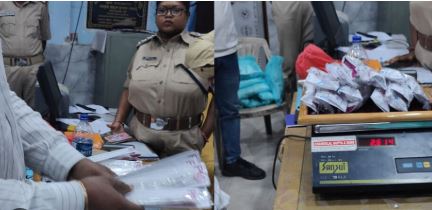Kuwait's Gulf Bank Rs 700 Crore loan fraud
A shocking case of alleged financial fraud has emerged, with Kuwait's Gulf Bank claiming losses of approximately Rs 700 crore due to unpaid loans by Indian nationals, primarily nurses from Kerala. This elaborate scheme, involving over 1,425 individuals, has sparked a transnational investigation and raised questions about loan security practices and the ethical implications of such actions.
Unraveling the allegations:
According to Gulf Bank, these individuals, mostly nurses working in Kuwait, secured loans without providing any collateral. They then left the country, often for destinations like India, Canada, Australia, and Europe, without repaying their debts. The bank alleges that many of these nurses deliberately took out large loans before emigrating, with the intention of defaulting.
The Bank's response:
Gulf Bank's Deputy General Manager, Mohammed Abdul Wase, has taken the matter to the Kerala Police, lodging a formal complaint and demanding action against the accused. The police have registered 10 FIRs against individuals who have been identified and located within Kerala. The charges include cheating and criminal breach of trust under the Indian Penal Code.
The Nurses' perspective:
The United Nurses Association presents a different perspective. They claim that most nurses took loans to cover recruitment expenses and that only a small number have defaulted. They attribute the non-repayment to job losses during the pandemic, travel restrictions, and subsequent unemployment.
Investigating the Discrepancy:
While the bank alleges intentional fraud, the nurses' association points to unforeseen circumstances. This raises critical questions:
- Were proper background checks and risk assessments conducted before granting unsecured loans?
- Did the bank have adequate safeguards in place to prevent such large-scale defaults?
- Were there genuine cases of hardship that prevented loan repayment?
The Challenges Ahead:
Even though the bank has identified many individuals involved, their absence from Kuwait poses a significant challenge in recovering the funds or pursuing legal action in Kuwaiti courts. This case highlights the complexities of international financial fraud and the difficulties in pursuing legal recourse across borders.
The alleged loan fraud by Kerala nurses has brought to light critical issues surrounding financial security, ethical lending practices, and the challenges of cross-border legal pursuits. This case has far-reaching implications for both the banking sector and individuals seeking employment abroad. A thorough investigation is crucial to determine the true extent of the fraud, identify the individuals responsible, and explore potential avenues for recovering the substantial losses incurred by Gulf Bank. Furthermore, this case underscores the need for stronger safeguards and ethical considerations in international lending practices to prevent such incidents in the future.














































